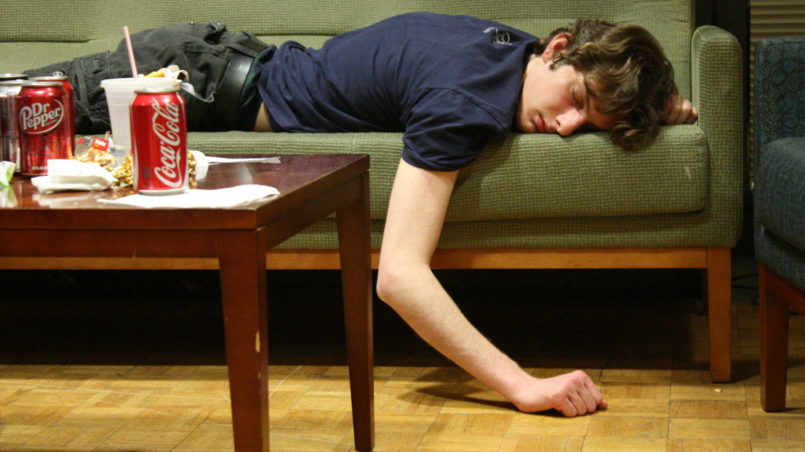Couchsurfing – The Modern Nomads

Couchsurfing is a web platform/app that creates a community of free spirited people, who like to travel off the beaten paths of tourist destinations. Couchsurfers are united by the spirit of adventure and wanderlust, and the desire to keep human experience authentic in the modern digital era.
What is couchsurfing?
The concept of couchsurfing is very simple. It connects local people, who have a spare bed, mattress, or most often – a couch, with travelers who want to experience the local atmosphere.
Today we often call ourselves ‘global citizens’, but the trend of globalization slightly tilts the scales toward ‘similarization’ instead of embracing differences unbiasedly. Through couchsurfing we have the opportunity to do the opposite – forget the worldwide hotel/hostel chains and experience the warmth and atmosphere of someone’s home. To be a global citizen doesn’t only mean to visit places, but to acknowledge their unique culture and richness, get closer to the places you visit, and the people who live there. Every couchsurfing is completely unique, and, therefore, unforgettable.
When I tell people I do couchsurfing, their immediate concern is about safety. (The first time I heard about it from a solo traveler, making his way around Europe, hitch-hiking and couchsurfing, I thought that it is crazy). Gradually I got to know more people who did couchsurfing, and who were alive and well; not only this, but they had amazing experiences and formed friendships.
- Always, and I mean ALWAYS, have a back-up option. You could have an alternative host to stay at, or a hostel that you can go to if things go south. You should research hostels and hotels in the city and near to your host.
- Do general research on the place you will be visiting. This includes familiarizing yourself with the transport to and location of your host’s house, and to research important cultural customs, sensitivities, and general safety recommendations for your destination.
- Never stay in a situation in which you don’t feel comfortable. Be clear about your boundaries, and don’t be shy to state them.
- Stay with hosts who are verified. And get yourself verified, so that the hosts feel OK about hosting you as well.
- You can find other safety tips on couchsurfing here.
Story time
In my first couchsurfing trip I learned Rule no. 1 – that you should always have a back-up plan. My best friend and I were planning a weekend trip to Dublin in mid-February. We would spend one night in the city, and sleep at the airport the next night, in order to catch a very early flight on Monday morning. We were very excited to try couchsurfing for the first time for that one night, but we also knew we should probably do some research on hostels in the area, just in case.
However, by the time we got round to doing the actual research, it turned out all hostels in Dublin were fully booked for the weekend. Our couchsurfing requests were not going very well either, and a lot of the hosts we contacted were busy or travelling. In the end, one guy responded that he would be happy to host us for the night. We exchanged Facebook profiles and numbers, so we could chat on whatsapp. If you read the couchsurfing safety tips, it says that you shouldn’t exchange numbers or personal information for safety reasons, but I, personally, feel much safer when I check someone’s Facebook profile.
We did not talk much on whatsapp, however. We were going to contact him once we arrived in Dublin – around 10 o’clock on Saturday evening, which is not exactly a great time to arrive. I texted him before I got on the plane to let him know that we were on our way but he didn’t respond.
We went to a pub on O’Connell Street, which has great cheery Irish music, and turned on the couchsurfing hangout option. “Hangouts” allows you to meet people, close to you – to go to a concert, have a coffee, or go to an art gallery. It is a very convenient way to meet new people in a new place, be it fellow travelers or locals. That’s how we met two guys from Brazil, who were studying in Dublin, and who showed us around the lively pub scene in Dublin.
By the time the bars closed and it became obvious that my friend and I were homeless for the night, our two new friends invited us to crash at their apartment for the night. Of course, before accepting, we checked their couchsurfing profiles once more, but they had been hosting in Brazil and Dublin for a while, and had over 40 reference, which were all positive. The next morning, they took us on a city trip around Dublin and, despite the freezing cold, we had a lot of fun.
Couchsurfing is not for everyone, but if you dare to try it, you will find a warm international community that in the modern lifestyle, where complaints of social isolation and distance are common, shows that the art of sharing is not dead.
Credits
| Image | Title | Author | License |
|---|---|---|---|
 |
Hackathon 2011 | matylda | CC BY-SA 2.0 |
